
Risk assessment determines possible mishaps, their likelihood and consequences, and the tolerances for such events. The results of this process may be expressed in a quantitative or qualitative fashion. Risk assessment is an inherent part of a broader risk management strategy to help reduce any potential risk-related consequences.
Scientific consensus is the generally held judgment, position, and opinion of the majority or the supermajority of scientists in a particular field of study at any particular time.
Public awareness of science (PAwS) is everything relating to the awareness, attitudes, behaviors, opinions, and activities that comprise the relations between the general public or lay society as a whole to scientific knowledge and organization. This concept is also known as public understanding of science (PUS), or more recently, public engagement with science and technology (PEST). It is a comparatively new approach to the task of exploring the multitude of relations and linkages science, technology, and innovation have among the general public. While early work in the discipline focused on increasing or augmenting the public's knowledge of scientific topics, in line with the information deficit model of science communication, the deficit model has largely been abandoned by science communication researchers. Instead, there is an increasing emphasis on understanding how the public chooses to use scientific knowledge and on the development of interfaces to mediate between expert and lay understandings of an issue. Newer frameworks of communicating science include the dialogue and the participation models. The dialogue model aims to create spaces for conversations between scientists and non-scientists to occur while the participation model aims to include non-scientists in the process of science.
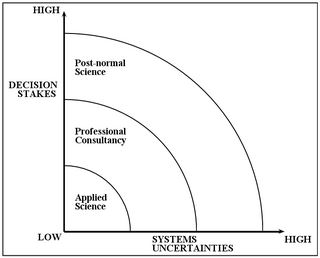
Post-normal science (PNS) was developed in the 1990s by Silvio Funtowicz and Jerome R. Ravetz. It is a problem-solving strategy appropriate when "facts [are] uncertain, values in dispute, stakes high and decisions urgent", conditions often present in policy-relevant research. In those situations, PNS recommends suspending temporarily the traditional scientific ideal of truth, concentrating on quality as assessed by internal and extended peer communities.

The Institute for Defense Analyses (IDA) is an American non-profit corporation that administers three federally funded research and development centers (FFRDCs) – the Systems and Analyses Center (SAC), the Science and Technology Policy Institute (STPI), and the Center for Communications and Computing (C&C) – to assist the United States government in addressing national security issues, particularly those requiring scientific and technical expertise. It is headquartered in Alexandria, Virginia.

Jerome (Jerry) Ravetz is a philosopher of science. He is best known for his books analysing scientific knowledge from a social and ethical perspective, focussing on issues of quality. He is the co-author of the NUSAP notational system and of Post-normal science. He is currently an Associate Fellow at the Institute for Science, Innovation and Society, University of Oxford.
Regulatory science is the scientific and technical foundations upon which regulations are based in various industries – particularly those involving health or safety. Regulatory bodies employing such principles in the United States include, for example, the FDA for food and medical products, the EPA for the environment, and the OSHA for work safety.
Kristin Shrader-Frechette is O'Neill Family Professor, Department of Biological Sciences and Department of Philosophy, at the University of Notre Dame. She has previously held senior professorships at the University of California and the University of Florida. Most of Shrader-Frechette's research work analyzes the ethical problems in risk assessment, public health, or environmental justice - especially those related to radiological, ecological, and energy-related risks. Shrader-Frechette has received the Global Citizenship Award, and the Catholic Digest named her one of 12 "Heroes for the US and the World".
P-boxes and probability bounds analysis have been used in many applications spanning many disciplines in engineering and environmental science, including:
Sensitivity auditing is an extension of sensitivity analysis for use in policy-relevant modelling studies. Its use is recommended - i.a. in the European Commission Impact assessment guidelines and by the European Science Academies- when a sensitivity analysis (SA) of a model-based study is meant to demonstrate the robustness of the evidence provided by the model in the context whereby the inference feeds into a policy or decision-making process.
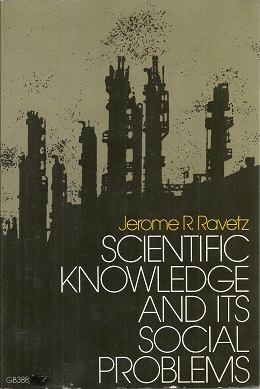
Scientific Knowledge and Its Social Problems is a 1971 book by Jerome Ravetz. It contains a reasoned illustration of science as a social process with all the failing and imperfections of human endeavors.
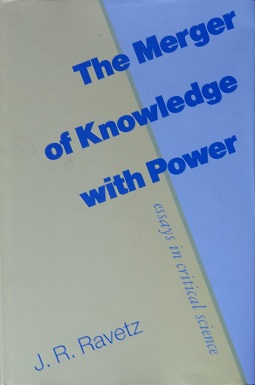
The Merger of Knowledge with Power: Essays in Critical Science is a book written in 1990 by Jerome Ravetz.
NUSAP is a notational system for the management and communication of uncertainty in science for policy, based on five categories for characterizing any quantitative statement: Numeral, Unit, Spread, Assessment and Pedigree. NUSAP was introduced by Silvio Funtowicz and Jerome Ravetz in the 1990 book Uncertainty and Quality in Science for Policy. See also van der Sluijs et al. 2005.

Silvio O. Funtowicz is a philosopher of science active in the field of science and technology studies. He created the NUSAP, a notational system for characterising uncertainty and quality in quantitative expressions, and together with Jerome R. Ravetz he introduced the concept of post-normal science. He is currently a guest researcher at the Centre for the Study of the Sciences and the Humanities (SVT), University of Bergen (Norway).

Science on the verge is a book written in 2016 by group of eight scholars working in the tradition of Post-normal science. The book analyzes the main features and possible causes of the present science's crisis.

The No Nonsense Guide to Science is a 2006 book on Post-normal science (PNS). It was written by American born British historian and philosopher of science Jerome Ravetz.
Quantitative storytelling (QST) is a systematic approach to exploring the many frames potentially legitimate in a scientific study or controversy. QST assumes that, in an interconnected society, multiple frameworks and worldviews are legitimately upheld by different entities and social actors. QST looks critically at models used in evidence-based policy. Such models are often reductionist in that tractability is achieved at the expense of suppressing available evidence. QST suggests corrective approaches to this practice.
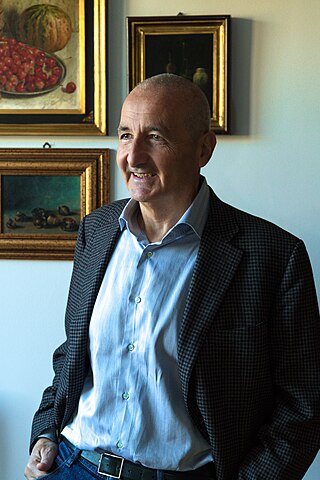
Andrea Saltelli is an Italian scholar specializing in quantification using statistical and sociological tools. He has extended the theory of sensitivity analysis to sensitivity auditing, focusing on physical chemistry, environmental statistics, impact assessment and science for policy. He is currently Counsellor at the UPF Barcelona School of Management.
The concept of Extended peer community belongs to the field of Sociology of science, and in particular the use of science in the solution of social, political or ecological problems. It was first introduced by in the 1990s by Silvio Funtowicz and Jerome R. Ravetz. in the context of what would become Post-normal science. An Extended peer community is intended by these authors as a space where both credentialed experts from different disciplines and lay stakeholders can discuss and deliberate.
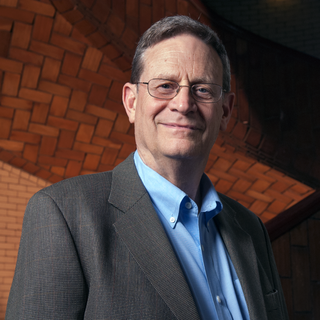
M. Granger Morgan is an American scientist, academic, and engineer who is the Hamerschlag University Professor of Engineering at Carnegie Mellon University. Over his career, Morgan has led the development of the area of engineering and public policy.











